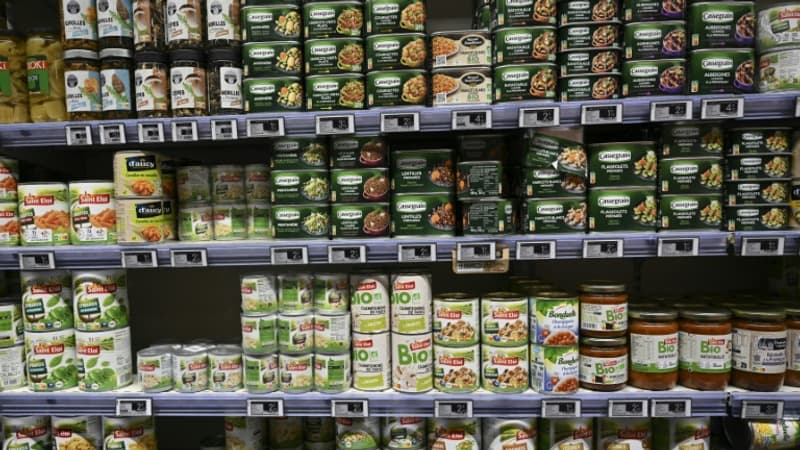Inflationary scandal or necessary to save companies? The subject of a fierce media battle between large retailers and the agri-food industry, the Descrozaille bill continues on its way. Led by representatives of the presidential majority, despite the government’s reluctance, this bill wants to change the balance of power in trade negotiations between distributors and manufacturers.
After being approved and reviewed by the National Assembly, then in turn by the Senate, the bill reaches a joint commission this Wednesday. Deputies and senators will try to agree on a common version. But each camera added its own measurements, rearranged others, even removed some, and the two versions of the text don’t look much like each other anymore.
• What is this bill?
The Descrozaille bill aims to rebalance commercial negotiations between distributors and manufacturers, regulated by law, giving more weight to manufacturers. But article 3 has provoked the anger of the big retailers: in the event of no agreement, it would be the rates demanded by the manufacturers that would be applied by default and the distributors would thus be forced to accept the price increases requested by their suppliers. .
The bill also proposes extending the experiment on monitoring promotions and raising the threshold for reselling at a loss (which requires distributors to sell food products with a minimum margin of 10%). Provided by the Egalim law, this experiment expires on April 15. In addition, the text intends to apply French law to large purchasing centers that distributors have established outside of France.
• What are parliamentarians asking for?
Article 3 was at the center of the debates in the National Assembly. In the Committee on Economic Affairs, first of all, the deputies gave one more month, under the aegis of a mediator, to find points of agreement. Then, an unexpected turn during the examination in session, with the deputy Frédéric Descrozaille who himself reviewed his measure: in case of failure of the negotiations after three months, and a mediation in which the Ministry of Economy, relations would be broken business without obligation. delivery.
The deputies also added new measures, absent in the initial version of the text. This includes, in particular, the limitation of logistical penalties imposed by a distributor on its supplier to 2% of the value of the products.
• What are the senators asking?
The senators also reworked Article 3 in their version of the text: mediation would be mandatory before detaining a judge if the manufacturer and distributor could not agree, in order to limit exclusions. The Senate also excluded fruits and vegetables from the promotions framework and the resale-at-loss threshold, and sacrificed agricultural raw materials in the private label (MDD) negotiations, and no longer just national brands.
Not to mention a very symbolic change: the senators changed the official name of the bill, now called “Proposition to Strengthen the Balance in Commercial Relations between Suppliers and Distributors.”
• What is happening this Wednesday?
The text reaches the Mixed Mixed Commission (CMP) this Wednesday, March 15. This legislative procedure consists of bringing together seven deputies and seven senators to establish a common version of a bill, after two readings of the text for each assembly -or a single reading if the government has initiated the accelerated procedure, as is the case de la Billet descrozaille. If they manage to agree on a common version, the text will be voted on by both chambers; otherwise, the National Assembly will have the last word.
• Will the bill pass?
Despite some adjustments, deputies and senators find themselves more or less with the measures related to logistical sanctions or purchasing centers abroad. The supervision of promotions, the resale threshold at a loss or the sanctification of agricultural raw materials should not tear the two chambers apart either. The heart of the discussions will be Article 3, especially since there will be strong pressure to review this measure. Without forgetting the official name of the law, not having the two assemblies proposed the same.
Source: BFM TV


